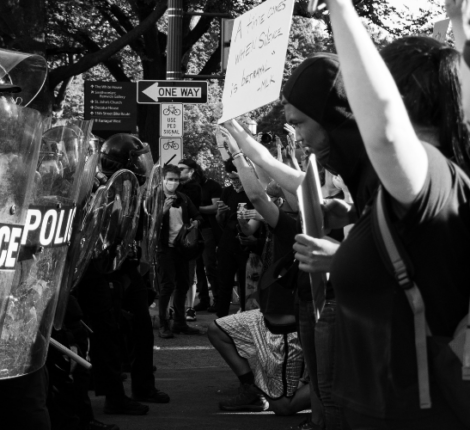New SEC Decision Gives Shareholder Activists the Right to Seek a Vote on Political Contributions (3/30/2011)
For Immediate Release: March 30, 2011
Contact: Julie Goodridge, NorthStar Asset Management, Inc.
Boston, Massachusetts
617-522-2635
jgoodridge[at]northstarasset.com
In the aftermath of Citizens United v. Federal Election Commission, the controversial Supreme Court decision in January of 2010 removing prohibitions on corporate electioneering contributions, Boston-based NorthStar Asset Management, Inc., a socially responsible investment firm, is pleased to announce a new SEC decision allowing shareholders of The Home Depot Company the right to seek a vote on political spending.
NorthStar filed a shareholder resolution seeking a vote on political spending fearing that its fiduciary obligation to protect client assets might be at risk if executives were allowed to continue to make political contributions outside of shareholder control. NorthStar contends that Company political contributions that are incongruent with stated company values or policies create risks to the company’s brand, reputation, and ultimately shareholder value. In one example of this, in July 2010, Target Corporation donated $150,000 to the political group Minnesota Forward, which was supporting a vocally anti-gay political candidate. This donation was followed by a major national controversy with demonstrations, petitions, threatened boycotts and considerable negative publicity for Target.
Motivated by a discrepancy between the company’s publically-stated corporate values and its political donations, NorthStar raised concerns about the failure of Home Depot’s political spending to reflect its policy against discrimination. Home Depot has a firm nondiscrimination policy which states that “the Company prohibits discrimination or harassment on account of race, color, sex (gender), age, religion, national origin, sexual orientation, gender identity or expression, disability, protected veteran…status, or any other basis prohibited under applicable law.” However, Home Depot’s corporate political contributions included donations to candidates whose actions and opinions were adverse to that policy, including:
- Brownback for Governor ($2,000): Sam Brownback is a supporter of a constitutional amendment to ban same-sex marriage.
- Nathan Deal for Governor ($6,100): Voted no on prohibiting job discrimination based on sexual orientation. (Nov 2007)
- Dustin McDaniel for Attorney General ($1,000): McDaniel advocates banning gay couples from foster parenting.
- McDonnell for Virginia ($10,000): Gov. Bob McDonnell has become infamous for rolling back non-discrimination protections for LGBT state workers in Virginia.
Even with an official policy guiding Home Depot’s political contributions, significant incongruence between the Company’s stated values and its political giving process exists.
Julie Goodridge, CEO of NorthStar, further explained that “in asking for a shareholder vote, NorthStar is asking Home Depot to recognize shareholders as owners of the corporation, because after all, it is shareholder money that is being allocated for political purposes.”
A shareholder vote on political donations would provide a measure of accountability that is lacking under the current system. This proposal created by NorthStar specifically asks the Home Depot board of directors to include the following items annually in their proxy statement: the company’s policies on political contributions, a report on political spending for the past year, and anticipated political spending for the next year. Shareholders would then vote on whether or not they support those policies and plans. In addition, NorthStar recommended in its proposal that the proxy report also analyze whether the spending is consistent with the Company’s values and whether it poses risks to the company’s brand, reputation, or shareholder value.
Home Depot challenged NorthStar’s resolution with the Securities and Exchange Commission (SEC), claiming (among other things) infringement upon the Company’s ordinary business. The SEC ruled in favor of NorthStar, affirming that resolutions which present a “significant social policy issue” are not excludable even if they may otherwise intrude on ordinary business. According to legal expert Sanford Lewis, who represented NorthStar, “In ruling in favor of allowing the proposal, the staff has essentially determined that after Citizens United, corporate political spending is a significant social policy issue and shareholders can seek to have input on management’s decisions.”
NorthStar Asset Management, Inc., based in Boston, is a wealth management company with a focus on socially responsible investing.



